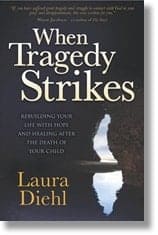Revisiting The Nashville Statement
A few of weeks ago I posted a blog about The Nashville Statement, and got a host of feedback from people, both those who loved what I wrote and those who thought I’d committed the unpardonable sin. It sad how angry Christians can get just by reading a different point of view. Here’s some of what I learned in the ensuing conversation on that blog, by email and on my Facebook Page:
1. Most people really get it, at least those on my blog and Facebook feeds. There’s a growing number of people who are accepting the fact that we are living in a post-Christian culture and we will not impact it by trying to force our morality on people who don’t know the God we know. Attempting to do so in a pluralistic society only makes you look arrogant and weakens your voice. This is why even people who agree with your moral stands grow weary of your need to tell everyone else how to live their lives. We are looking for better language and approaches to help people discover who God is so that they will want to follow his ways.
2. Those who put morals first have little appreciation how arrogant their tactics appear and how that destroys any opportunity to impact the culture. Most of them think as long as you’re speaking truth you cannot be guilty of arrogance. However, Merriam Webster defines arrogance as, “an attitude of superiority manifested in an overbearing manner.” I don’t know a better definition of what I read in The Statement and what I hear from many of the so-called Bible teachers behind it. Their air of superiority makes me cringe, even though I’m in agreement with much of what they believe.
Truth can be spoken with gentleness and humility that opens doors, or with superiority that closes them. That’s why the more truth you think you know, the more humility you will need to let Jesus cultivate in your heart. There is more written in Scripture against arrogance than there are sexual sins, and that arrogance is a major deterrent to effective communication. Though Jesus had all truth he was never accused of arrogance, because humility and compassion set his course as he engaged people. And it probably helped that he didn’t write columns for the Jerusalem Post or Lifestream for that matter.
3. There is a great divide in evangelicalism between those who think we need more Law to bring people to repentance, and those think Jesus superseded that approach in his Incarnation. Is it by guilt or by goodness that the Spirit leads the lost to repentance? The problem is so many of them were won by guilt, but that only worked because they had a religious upbringing. Those without it won’t find guilt a helpful course to finding God.
They are also divided on whether human effort can conform to God’s standards, or whether God does the transforming as we invite him to live in us. I know those behind the Nashville Statement would claim only God has the power to change hearts, but their demands for other people’s compliance with their morality would suggest otherwise.
4. People really hate being within 500 feet of the ‘P’ word. And yet so much of the public perception of Christianity is more analogous to how Jesus saw the Pharisees rather than how the crowds saw Jesus. I see much of that in me in my first forty years and have even joked about needing a Pharisectomy because I was more concerned about people following the rules than knowing him.
Some even accused me of name-calling those they consider to be great theologians. I wrote (very carefully I might add) that “it seems that the Pharisees met….” I admit it’s a small distinction but nonetheless a critical one. I don’t know how these people treat others around them, but many are known beyond their borders as those who care more about rules than people. Being a Pharisee in the first century wasn’t a pejorative, except to Jesus. They were the best-read theologians of the day, the rule makers and the busybodies who made sure others followed them as well under penalty of death. They were proud of their station and even young Saul aspired to be a “Pharisee of Pharisees.” What I meant by correlating their actions to those of the Pharisees was that they seem to demonstrate more concern for sexual rules than they do for love and compassion of those Jesus saw as “harassed and helpless, like sheep without a shepherd.”
5. For too many the Statement has already become what I said it would—a litmus test. If you’re not wearing the “Nashville” pin on your lapel, some will accuse you of being soft on morality. They seem incapable of understanding that you can be committed to the moral claims of Scripture and at the same time not want to use civic law to discriminate against those who do not yet know the God we know.
6. People who categorically state the Bible teaches anything about being transgendered aren’t being honest with the fact that it never mentions it. There’s one verse about not wearing clothing of the opposite gender in Deuteronomy, but that is a very different application and one that is alongside other instructions God gave Israel that we don’t follow today. I realize many prefer a simpler world where everyone falls in line with what makes them comfortable, but it ignores the deep struggle and suffering that goes on in the transgendered soul. The conclusions made in The Statement are at best an extrapolation of Scripture and must be held suspect while showing compassion for those who for whatever reason in deep conflict with their anatomical gender.
7. Where is the compassion among evangelicals for people who, through no fault of their own, struggle with affections and desires outside of Scripture’s moral window. If the New Testament is true, none of us have the power to change ourselves without the redemptive power of Jesus at work in us. It’s the love and goodness of God that begins to make inroads into our hearts so that we begin to care about his will and his power to change our rebel hearts. People will beat a path to your door when you show them you care. If you treat people with contempt you become an impediment to the Gospel finding its way to them.
8. The best comment I received about this wondered if the reason conservative Protestants are so enamored with civic law, is because they refused to write a book of common order to spell out their view of morality as previous groups had done. Instead, they substituted civic law as their vehicle of morality and have had a painful time adjusting to their loss of influence as societies became more secular. They see civic law as their moral code and are frustrated when it no longer reflects their preferences in matters of sexuality and gender identity. They seem unable to understand that when you enforce theological views with the penalty of the state you become an oppressor and an advocate for discrimination.
That’s how Christianity lost its hold on the public debate as the wider culture concluded that freedom of conscience took precedence over theological demands, especially if those violating those demands weren’t a detriment to society and weren’t otherwise infringing on the rights of others. Thus, gay marriage and transgendered issues are being resolved as a freedom of conscience issue by the culture rather than a theological one, as they should by a secular state. Christianity always loses its vitality when it is enforced under the penalty of law. The life of God is freely given and can only be freely received.
9. Some have suggested that The Nashville Statement was not intended as a volley in the culture wars, but to draw a line of theological purity to exclude those pastors, authors, and denominations that advocate for the theological acceptance of homosexuality. That may be true, but the way they released it in the secular press would argue otherwise, and the fact that they did not host a wider conversation but stuck to a very narrow segment of evangelicalism would undermine that hope. The controversy it caused, as much by its process as its conclusions, shows that no one can in selective isolation compose an edict and have any hope that it will clear the air or bring the church together. The age of presumed gatekeepers has long since vanished.
10. As a culture we are losing our appreciation for nuance and assume that people can fit into one of two pre-determined camps. In our last election, we could either vote for the party who wanted to give amnesty to all undocumented aliens, or to the one who wanted to deport them all. No one was willing to negotiate the difficult space between those two extremes and find a more nuanced and just solution tailored to the circumstances of different people. The same is true of sexuality. You have to push biblical morality on everyone or the authenticity of your faith is suspect. Conversely people think your fidelity to Scripture will make it impossible for you to love those who don’t believe it. I reject both extremes. It is possible to disagree on moral issues and still be able to treat each other with compassion and respect, by protect the freedom of everyone’s right of conscience.
I hope we find a different conversation, both within Christianity about matters of morality and with the world in a way that opens the door for people to discover the Gospel, not slams it shut in their face before they ever have a chance to know how deeply loved they are by God.














